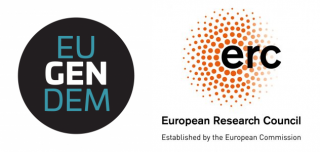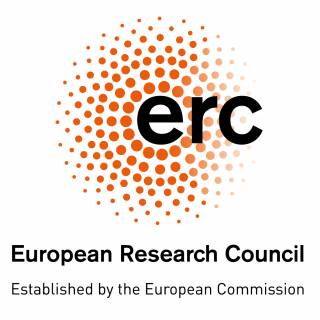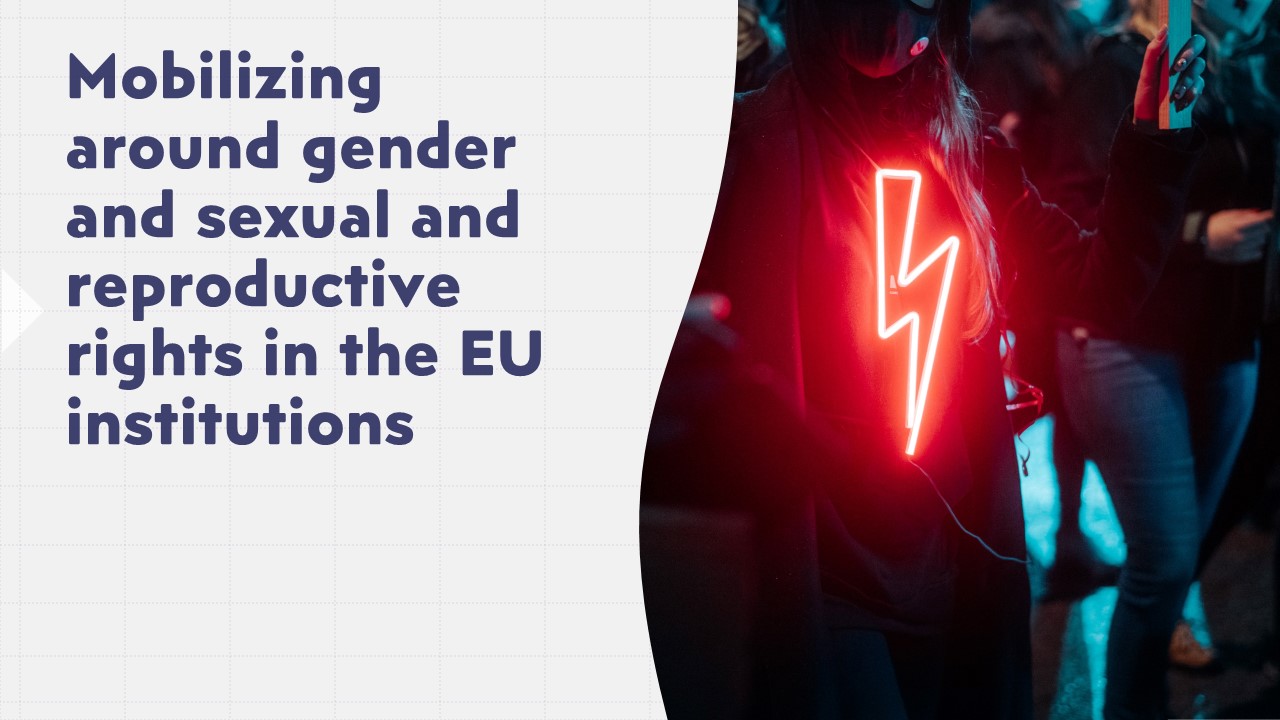Our EUGenDem workshop sessions on Gender, democracy and polarised politics in Europe continued on 29 April 2021 with a session on ‘Mobilizing around gender and sexual and reproductive rights in the EU institutions‘.
Opposition to sexual and reproductive rights is one of the key gendered lines of contestation in European politics today. Political parties and individual politicians opposing gender+ equality have made significant gains in the 2019 European elections, thus increasing their presence in the European Parliament especially. Backlash against SRHR is also visible at member state level, for instance with the recent near complete restriction of the right to abortion in Poland. The workshop delved into the framings of SRR at European level as well as the political implications of the popularity and resonance of these arguments.
Chair: Anna Elomäki (Tampere University, Finland)
Speakers:
Elena Zacharenko (Tampere University, Finland): Rise in anti-SRHR and anti-gender opposition at EU level – backlash on progress or opposition to the neoliberal logic?
Lynda Gilby (Tampere University, Finland): Reproductive Politics and Universal Health Coverage – The impacts of right-wing populism on SRHR in international forums
Valentine Berthet (Tampere University, Finland): The Politics of Abortion in the European Parliament: what can we learn for European integration?
Time: April 29th 2021, 11:00-12:30 (Helsinki time)
ABSTRACTS:
Rise in anti-SRHR and anti-gender opposition at EU level – backlash on progress or opposition to the neoliberal logic?
Elena Zacharenko
The presence and activity of anti-SRR and anti-gender movements has been on the rise in Europe (Kuhar & Paternotte 2018). In the past few years, the right-wing resistance to the term ‘gender’ has become prominent at EU level as well (Ahrens 2018). Political parties and individual politicians opposing gender have made significant gains in the 2019 European elections, thus increasing their numbers in the European Parliament. There is therefore a need to analyse the popularity of the anti-gender movement and why it resonates with voters – is this indeed a backlash to the inevitable march towards progress or could it be motivated by the progressive indivualisation, marketization, and atomisation of society under neoliberal policy?
Reproductive Politics and Universal Health Coverage – The impacts of right-wing populism on SRHR in international forums
Lynda Gilby
Universal health coverage (UHC), including sexual and reproductive health and reproductive rights (SRHR), is a part of global efforts for reaching the United Nations Agenda 2030. However, the inclusion of SRHR as part of broader efforts to achieve UHC has come under threat as a result of far-right coalition building. (Gilby & Koivusalo, 2020). This increase in opposition to SRHR at the UN has resulted in changes in the language on SRHR in UN outcome documents and resolutions, which has seen a removal of references to abortion, modern contraceptives, and a change in comprehensive sexuality education which removed ‘sexuality’ and placed the emphasis on the role of families (Gilby, Koivusalo & Atkins 2021). The focus of this mixed qualitative methods research will move to the European Parliament to analyse EU resolutions and debates on SRHR, NGO policy briefs, and key informant interviews, to provide timely information on any changes to the references to SRHR in EU documents, and the impacts of far-right populism on UHC and global health governance more broadly.
The Politics of Abortion in the European Parliament: what can we learn for European integration?
Valentine Berthet
Debates about sexual and reproductive health and rights (SRHR) were recently revived in the European Parliament with a new report on SRHR in the frame of women’s health from the Committee on Women’s Rights and Gender Equality. This report came at a moment where both the COVID-19 and the ban on abortion in Poland posed serious threats of access to reproductive rights for EU citizens. While reproductive rights divided well-before contemporary forms of opposition to gender equality (Verloo 2017), this report gives a new opportunity for analysing MEP’s resistance to SRHR and the place of reproductive rights in the future of the EU (Mondo 2014). As part of the EUGenDem project, this article scrutinizes the EP and its political groups, whose roles are to shape and politicize future EU policies and core values, and ask: how are reproductive rights constructed in the EP? And what are the resistance telling us about future European integration? The article uses a qualitative analysis of several EP debates and official documents as well as interviews with MEPs and parliamentary staff, with the aim to contribute to the effort of gendering European integration (Lombardo and Kantola 2019).
In case of questions about the workshop, you can contact Barbara Gaweda (barbara.gaweda@tuni.fi).
The full program of the EUGenDem workshop series can be found here.


